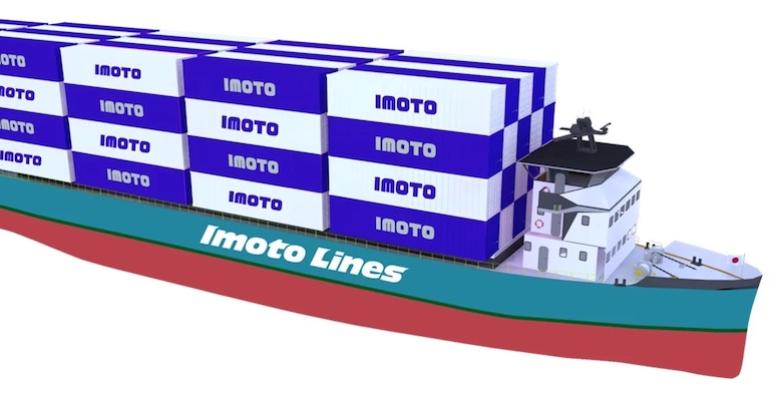Imoto Lines and Marindows aim to launch the 200-teu feeder vessel that aims to address the issues of decaronbisation, crew shortages and safe navigation for Japanese domestic shipping.
The container vessel will feature Japan’s first exchangeable container batteries, alongside onboard batteries, and generators, and conduct demonstration experiments on the Kobe ~ Hiroshima service.
It will be compatible with complete zero emissions by retrofitting with low environmental impact generators (such as hydrogen fuel cells or bio/synthetic fuels). In the hybrid version, the boxship will be able to travel up to 5,000 km, according to Imoto Lines.
The Ministry of the Environment, Government of Japan adopted the project as a three-year project for the “FY2024 Carbon Neutral Technology Research and Development Program”. The vessel will be built at Miura Shipbuilding in Japan. The project is scheduled to be completed in 2027.
“This project is a challenge towards a sustainable future for domestic maritime shipping, aimed at fundamentally solving the three major challenges the industry faces: decarbonisation, crew shortage, and safe navigation,” the partners noted.
“This ship will achieve safe and efficient navigation with fewer people and less skill/experience required through electrification, thorough standardisation and modularisation, and land-based support assuming standardisation,” the partners said.
The utilisation of renewable energy charged in container batteries not only reduces CO₂ emissions during operation but also achieves zero emissions over the entire lifecycle (fuel mining, manufacturing, usage), said Imoto and Marindows.
Copyright © 2024. All rights reserved. Seatrade, a trading name of Informa Markets (UK) Limited.
Add Seatrade Maritime News to your Google News feed.  |

